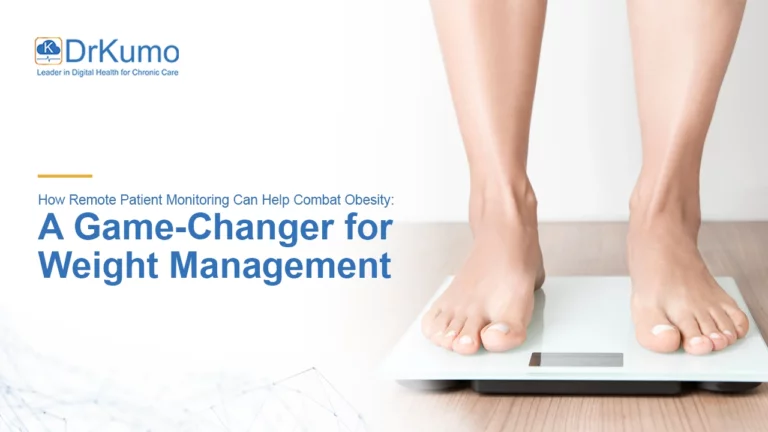The healthcare industry is rapidly evolving, and Chronic Care Management (CCM) programs have become increasingly valuable for clinics, hospitals, and healthcare providers in 2025. With rising chronic disease rates, value-based care models, and financial incentives, implementing a CCM program can significantly improve patient outcomes, reduce costs, and increase revenue. While not mandatory for all healthcare practices, CCM offers substantial benefits that make it a strategic choice for providers looking to enhance patient care and operational efficiency.
This article explores why every healthcare practice must adopt a CCM program, how AI and Remote Patient Monitoring (RPM) are enhancing CCM effectiveness.
The Growing Need for CCM Programs in 2025
1. Chronic Diseases Are Overwhelming Healthcare Systems
Chronic diseases like diabetes, heart disease, COPD, and hypertension are responsible for 90% of healthcare expenditures in the U.S. The aging population and lifestyle-related conditions have increased the burden on healthcare providers, making proactive chronic disease management a necessity.
A well-structured CCM program supports proactive intervention and improved disease management, which may help reduce costly emergency visits and hospitalizations.
2. Medicare and Insurance Reimbursements for CCM Are Increasing
CCM services are a crucial component of value-based care, helping providers improve patient outcomes while generating additional revenue. As of 2025, the Centers for Medicare & Medicaid Services (CMS) has updated CCM Current Procedural Terminology (CPT) codes and reimbursement rates, making it even more financially viable for healthcare providers to implement a CCM program.
Below are the national payment amounts for non-facility pricing, sourced directly from the CMS Physician Fee Schedule (CMS, 2025).
| CPT Code | Description | Time Requirement | 2025 National Payment Amount (Non-Facility) |
|---|---|---|---|
| 99490 | Non-complex CCM, 20 minutes of clinical staff time per month | ≥20 minutes | $60.49 per patient/month |
| 99439 | Each additional 20 minutes of CCM services (billed with 99490) | +20 minutes | $45.93 per patient/month |
| 99487 | Complex CCM, 60 minutes of clinical staff time with moderate-to-high complexity medical decision-making | ≥60 minutes | $131.65 per patient/month |
| 99489 | Each additional 30 minutes of complex CCM services (billed with 99487) | +30 minutes | $70.52 per patient/month |
| 99491 | CCM services personally provided by a physician or other qualified healthcare provider, 30 minutes per month | ≥30 minutes | $82.16 per patient/month |
3. Value-Based Care Requires CCM Integration
Healthcare is shifting away from fee-for-service models toward value-based care, where providers are rewarded for keeping patients healthy and reducing hospitalizations.
A CCM program improves care coordination, enhances patient engagement, and reduces complications, helping providers meet value-based care quality metrics and increase financial incentives.
4. CCM Programs Improve Patient Retention and Satisfaction
Patients enrolled in CCM programs receive personalized, continuous care, leading to:
- Higher patient satisfaction (patients feel more supported and engaged).
- Improved adherence to treatment plans and medications.
- Lower risk of disease progression and hospital readmissions.
A study published in 2024 found that patients receiving non-face-to-face chronic care management services had reduced healthcare utilization, including fewer hospital admissions and emergency department visits, and improved health outcomes. Another study reported that over 90% of respondents expressed high satisfaction with CCM services, emphasizing its value in extending care beyond traditional settings. While studies suggest a correlation, individual results may vary based on patient compliance and program implementation.
How AI and Remote Patient Monitoring (RPM) Enhance CCM Programs
Traditional CCM programs rely on manual documentation, phone calls, and in-person check-ins. In 2025, AI-driven automation and RPM are transforming CCM into an intelligent, real-time health management system.
1. AI Automates Administrative Tasks, Reducing Workload
AI-driven CCM platforms, like DrKumo, significantly reduces manual charting, scheduling, and compliance monitoring through automation.
✔ Patient eligibility identification (automatically flag eligible patients in the EHR).
✔ Automated documentation & compliance reporting for billing.
✔ AI-generated risk stratification (identifies high-risk patients needing urgent intervention).
This reduces staff burden, allowing providers to focus on patient care rather than paperwork.
2. Remote Patient Monitoring Provides Real-Time Health Data
Integrating RPM with CCM allows providers to remotely monitor vital signs, detect health deterioration early, and intervene before hospitalizations occur.
How RPM Supports CCM:
| RPM Device | Chronic Condition Managed | Benefit to CCM |
|---|---|---|
| Blood Pressure Monitor | Hypertension, Heart Disease | Detects BP spikes early |
| Glucometer | Diabetes Management | Ensures glucose control |
| Pulse Oximeter | COPD, CHF | Monitors oxygen levels |
| Smart Weight Scale | CHF, Obesity | Tracks fluid retention |
A recent prospective cohort study published in JMIR Formative Research examined the impact of home digital monitoring on hospital readmissions and emergency department (ED) visits among high-risk post-discharge patients. The study followed 41 patients with respiratory and cardiovascular conditions, monitoring their health status using telemonitoring tools after hospital discharge.
The study found that home digital monitoring significantly reduced hospitalizations, ED visits, and total hospital stay days at both three and six months post-intervention:
- At 3 months:
- Hospitalizations decreased from 0.45 to 0.19 per patient (p = .03)
- ED visits dropped from 0.48 to 0.06 per patient (p < .001)
- Hospital stay days were reduced from 6.61 to 1.94 days (p = .08)
- At 6 months:
- Hospitalizations dropped from 0.55 to 0.23 per patient (p = .01)
- ED visits decreased from 0.55 to 0.23 per patient (p = .02)
- Hospital stay days declined from 7.48 to 6.03 days, though not statistically significant (p = .73)
3. Virtual Care and AI-Powered Decision Support
AI-enhanced CCM platforms provide predictive analytics and automated alerts when patient vitals trend outside safe ranges. This allows providers to intervene in real time rather than waiting for the next scheduled appointment.
Why Healthcare Practices Should Choose DrKumo’s CCM Solution
DrKumo is revolutionizing CCM through cutting-edge RPM technology, AI-driven analytics, and seamless EHR integration. As a leader in digital health solutions, DrKumo provides a secure, intelligent, and scalable CCM platform designed to improve patient outcomes while optimizing healthcare operations.
Certified by URAC and recognized as a key provider in a $1.032 billion contract with the U.S. Department of Veterans Affairs, DrKumo upholds the highest cybersecurity standards (VA Directive 6500, FIPS 140-3, HIPAA) to ensure secure and compliant patient data management.
By equipping healthcare providers with real-time data and AI-driven insights, DrKumo supports proactive intervention and improved care coordination, potentially leading to reduced hospital readmissions.
By choosing DrKumo’s CCM solution, healthcare providers gain access to an AI-driven, HIPAA-compliant platform that streamlines workflows, automates billing, and delivers real-time actionable health data—ensuring better patient engagement, improved clinical decision-making, and long-term cost savings.
Takeaways
A CCM program is no longer just an optional service—it is a necessity for healthcare providers aiming to enhance patient care, reduce costs, and increase practice revenue. With AI and RPM integration, CCM programs have the potential to be more efficient and financially viable for many healthcare practices.
Healthcare providers looking to improve chronic disease management, and optimize workflows should integrate DrKumo’s AI-powered CCM and RPM platform today.
Don’t wait—enhance your practice’s chronic care management. Contact DrKumo today.
Disclaimer: This article is for informational purposes only and does not constitute medical or legal advice. Healthcare providers should review CMS regulations and consult IT professionals before implementing new technology solutions.








